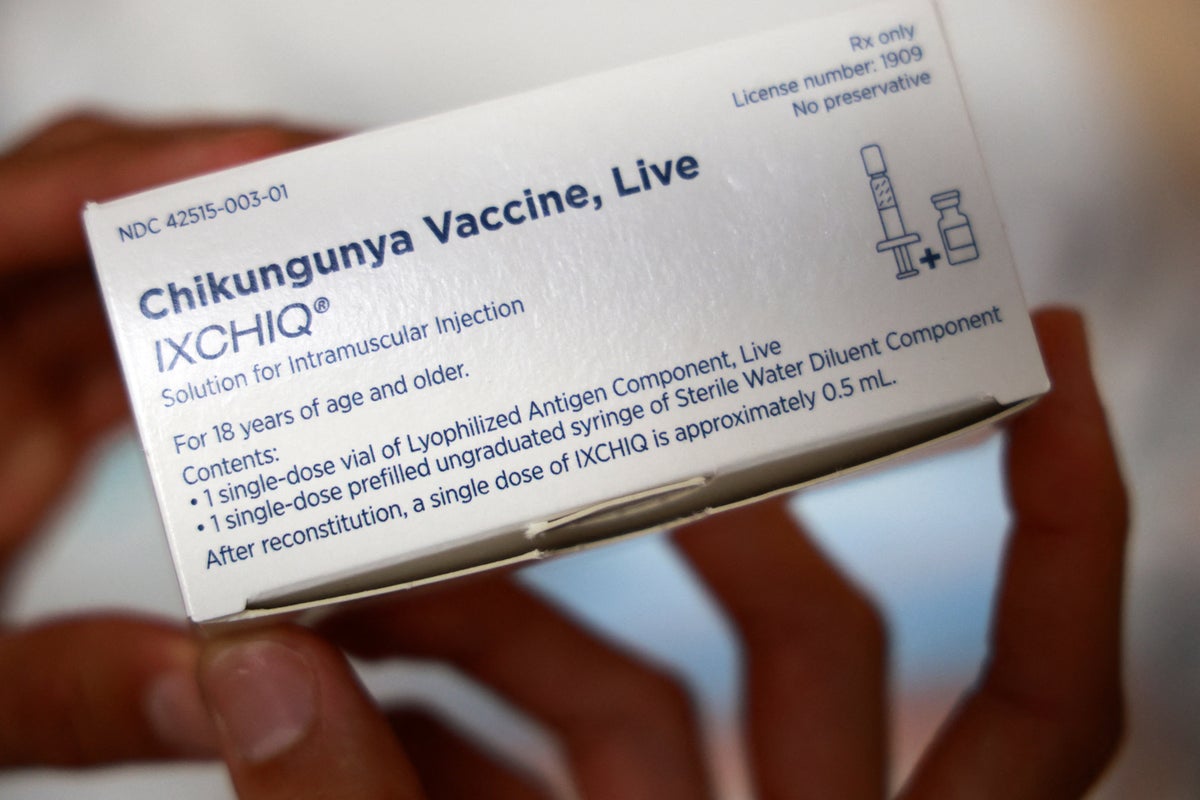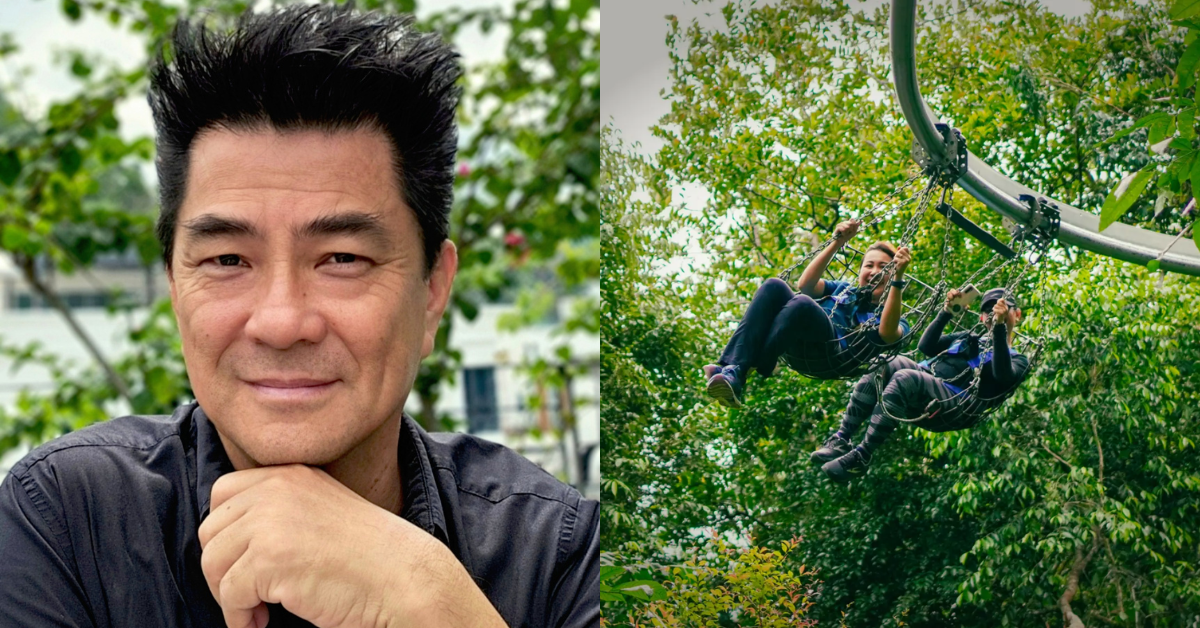What is chikungunya? How to avoid debilitating virus while on holiday as cases rise in France
Experts explain what the chikungunya virus is, and what to do to prevent getting sick

Health officials are warning travellers of a mosquito-borne virus that can cause debilitating joint pain, after cases emerged in areas of France.
While the virus known as chikungunya is more commonly found in tropical areas of the world, cases have now been appeared in France, a popular holiday destination for Brits, especially during the summer months.
This year so far, France has reported 14 cases of chikungunya virus, on the mainland and the French island of Corsica.
While Europe is not currently experiencing a severe outbreak, health officials on the continent are making travellers aware of the virus as well as the rollout of a new vaccine in the UK.
We have rounded up what travellers need to know about the virus, plus advice from a specialist travel doctor on how to best prepare for travelling overseas.
What is chikungunya and how is it spread?
Chikungunya virus disease is a mosquito-borne disease that is found across tropical and sub-tropical regions.
It is spread to humans by a bite from an infected mosquito. It cannot be passed from human to human.
Most cases have been found in the Americas, Africa and Asia. Brazil has the most cases, with over 141,000, followed by Argentina with over 2,500 so far in 2025.
In total, there have been approximately 220,000 chikungunya cases and 80 related deaths across 14 countries/territories since the beginning of the year.
Réunion and Mayotte, two French islands off the east coast of Africa, have ongoing outbreaks of chikungunya, with the former recording 51,000 cases as of May 2025.
Mayotte has seen 560 cases, with the island moved to the epidemic phase, which indicates intense and widespread transmission of the virus throughout the territory.
The transmission of dengue and chikungunya virus in mainland Europe has been linked by the European Centre for Disease Prevention and Control (ECDC) to travellers who have caught the virus outside the region, then gone to countries within Europe with mosquitoes that are able to carry the virus after biting the person.
“The risk of locally acquired chikungunya and dengue virus transmissions is therefore increasing,” the ECDC said.
What are the symptoms?
‘Chikungunya’ comes from a word used by the Makonde people in Tanzania, where the disease was first discovered in the 1950s, which means “that which bends up”. This describes the contorted posture of infected people who experience severe joint pain.
Alongside joint pain, people can also experience an abrupt onset of fever, joint swelling, muscle pain, headaches, nausea, fatigue and rashes.
The joint pain can be debilitating and usually lasts for a few days, but it has been known to last for weeks, months or even years.
If an infected person does not experience joint pain, the symptoms will be mild and can go unrecognised as chikungunya.
Most people will recover fully from the infection. There have been some occasional cases of eye, heart, and neurological complications, while newborns and older people with underlying medical conditions are at a higher risk of severe disease.
Patients with severe disease should be hospitalised because of the risk of organ damage or death.
Once someone has recovered from chikungunya, they are likely to be immune to future chikungunya infections.
Is there a vaccine?
The UK government has approved a vaccine against chikungunya disease, containing a form of the virus that has been weakened so it cannot multiply.
The vaccine works by training the immune system to recognise the virus, which will then produce specific antibodies to attack it.
It can only be obtained via a prescription and given to those who plan to travel abroad where the virus is present.
Last month, the government released a further announcement to say that the Commission on Human Medicines has temporarily restricted the use of the vaccine in people aged 65 and over as a precautionary measure.
To prevent getting bitten by mosquitoes, the World Health Organisation advises using insecticides; wearing clothing that minimises skin exposure; using window and door screens, and insecticide-treated mosquito nets; and applying certain repellants to skin and clothing.
A travel doctor’s guide on being prepared
Dr Richard Dawood, a travel medical specialist at Fleet Street Clinic, explained to The Independent how the vaccination can help travellers prevent getting sick from the chikungunya virus.
He said: “This is a new situation for us. Until a very short time ago, we had no vaccine, and the only approach to prevention was to make careful use of insect repellents and insect precautions.
“So now we've got this extra tool in the armoury, and because the vaccine gives long-lasting protection, it's something that could be considered if you are planning to travel over a period of time.
“It's a fairly expensive vaccine, but if you're going to be travelling over a period of years to Southern Europe and beyond, it may be something that could be considered.”
When asked about getting the vaccination for a trip to France, Mr Dawood advised to look at the decision in terms of where you will be travelling over the next few years rather than in the context of a single trip.
“The risk from a one-off short trip to France is probably very small,” he said.
“There's been only a very small number of cases so far. So statistically, you're not very likely to, but over time, as somebody who loves to travel and loves going to hot countries, then I would probably want to be protected against it in the long term.”
Wherever you are travelling, Mr Dawood advised holidaymakers to “do your homework”.
He said: “If there's an actual outbreak at your destination, then I would say no hesitation, definitely have the vaccine.
“Taking a bit of time and getting some really focused travel health advice for your particular trip is very worthwhile because it can save you from getting a vaccine that you don't need or that may not be sensible for you, and it can help prioritise the really important things for your trip.
Travel clinics can also offer advice on things like insect bite precautions and reducing the risk in other ways, he added.
For more travel news and advice, listen to Simon Calder’s podcast

 Konoly
Konoly 































